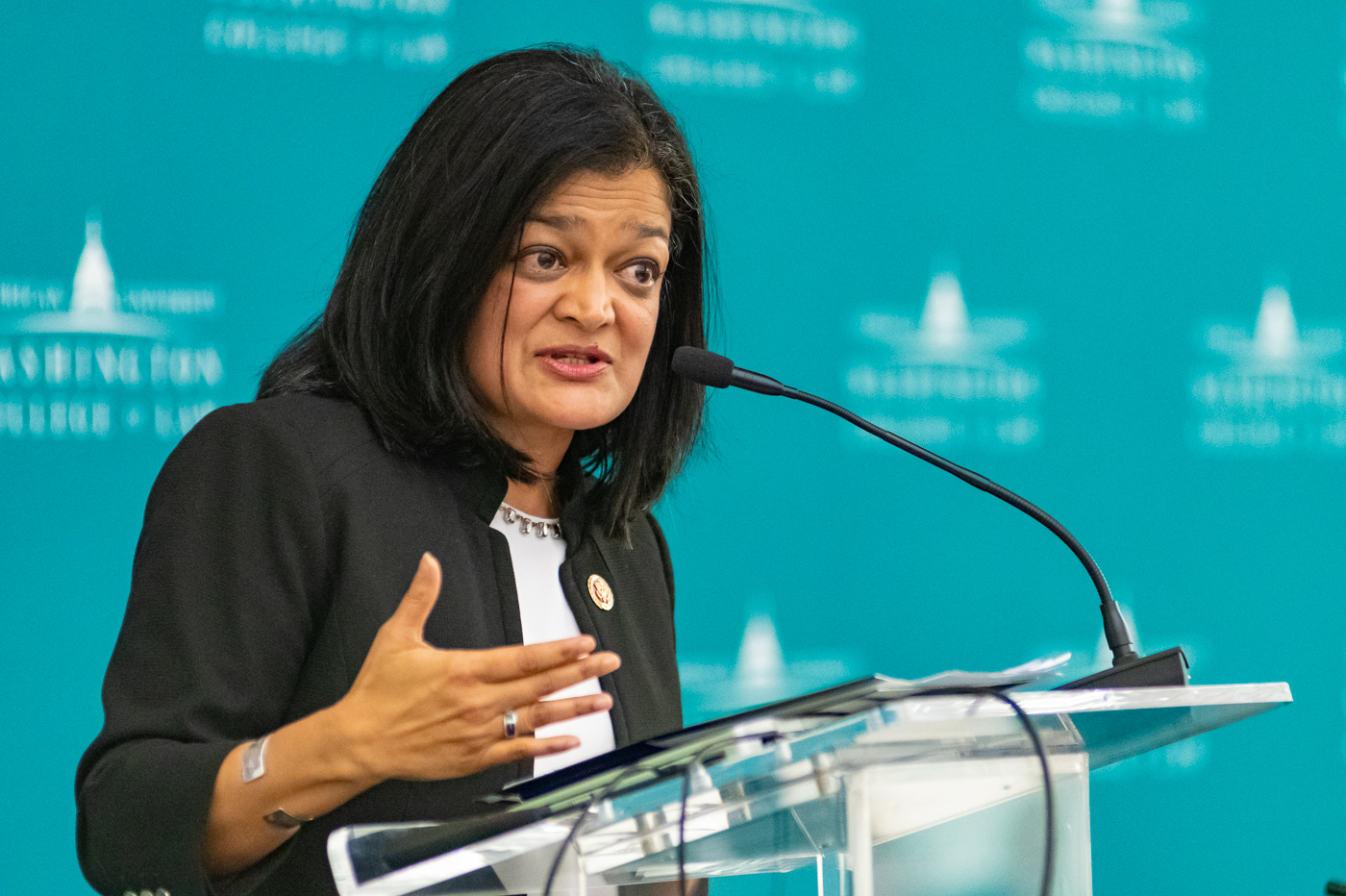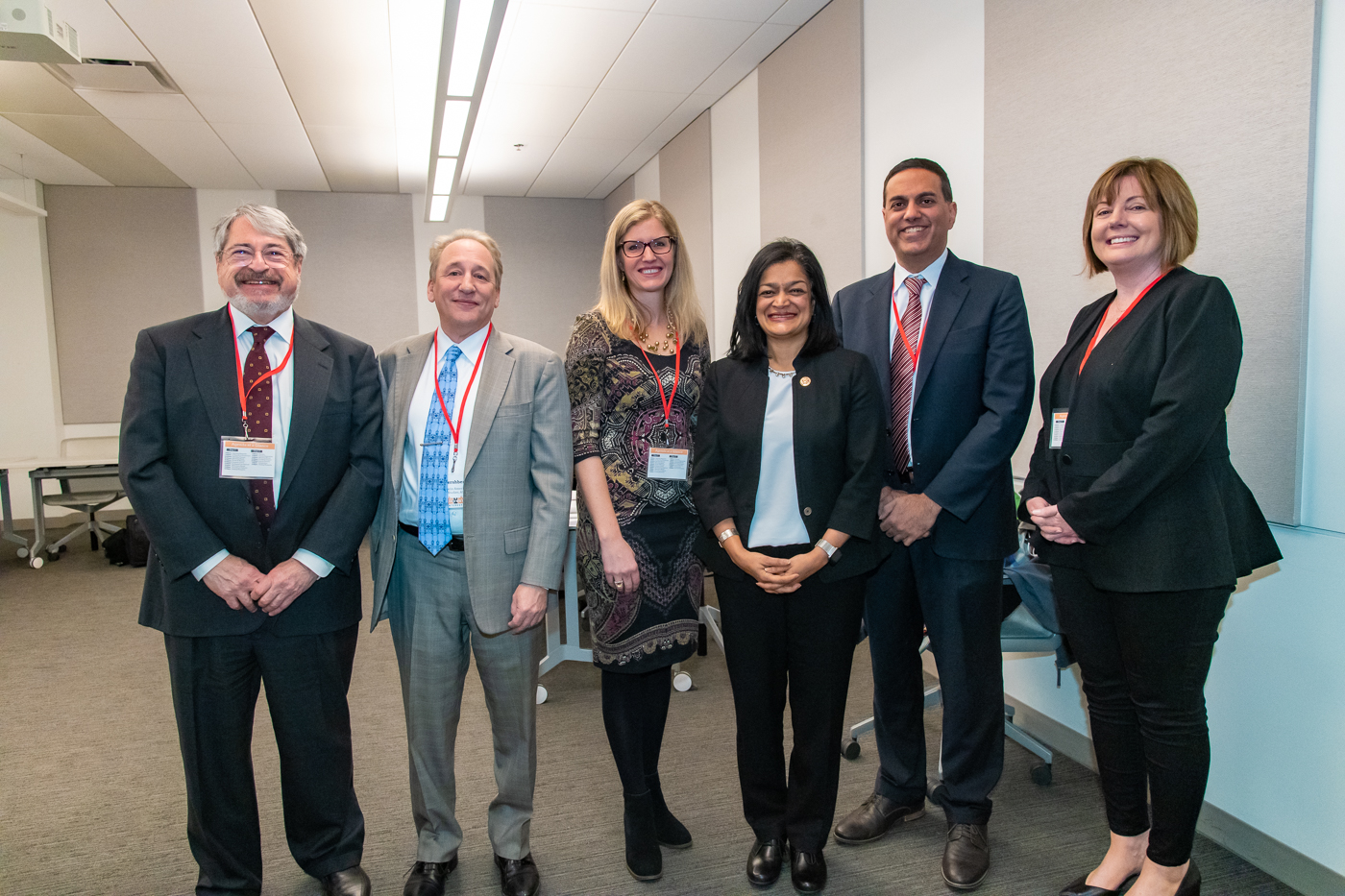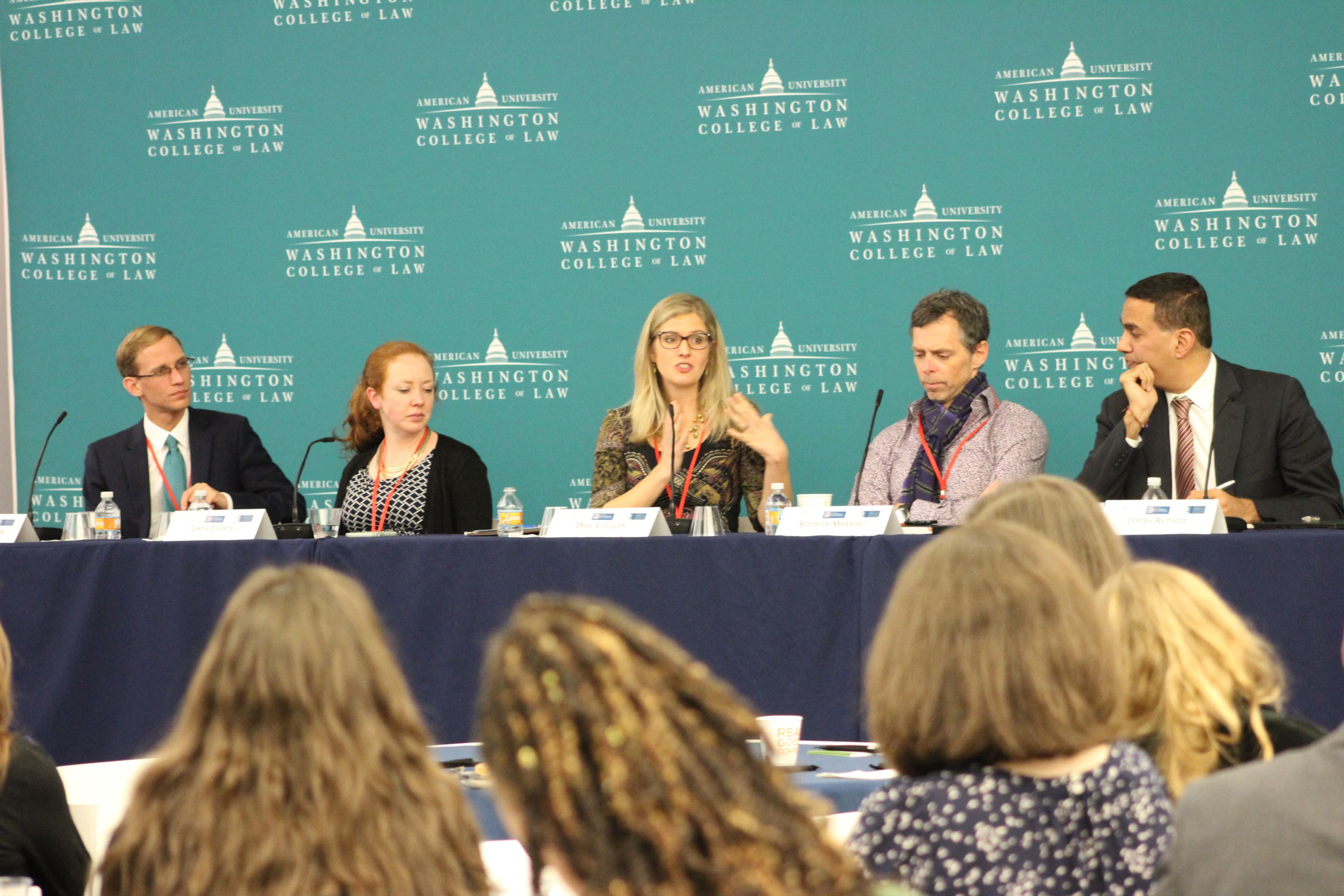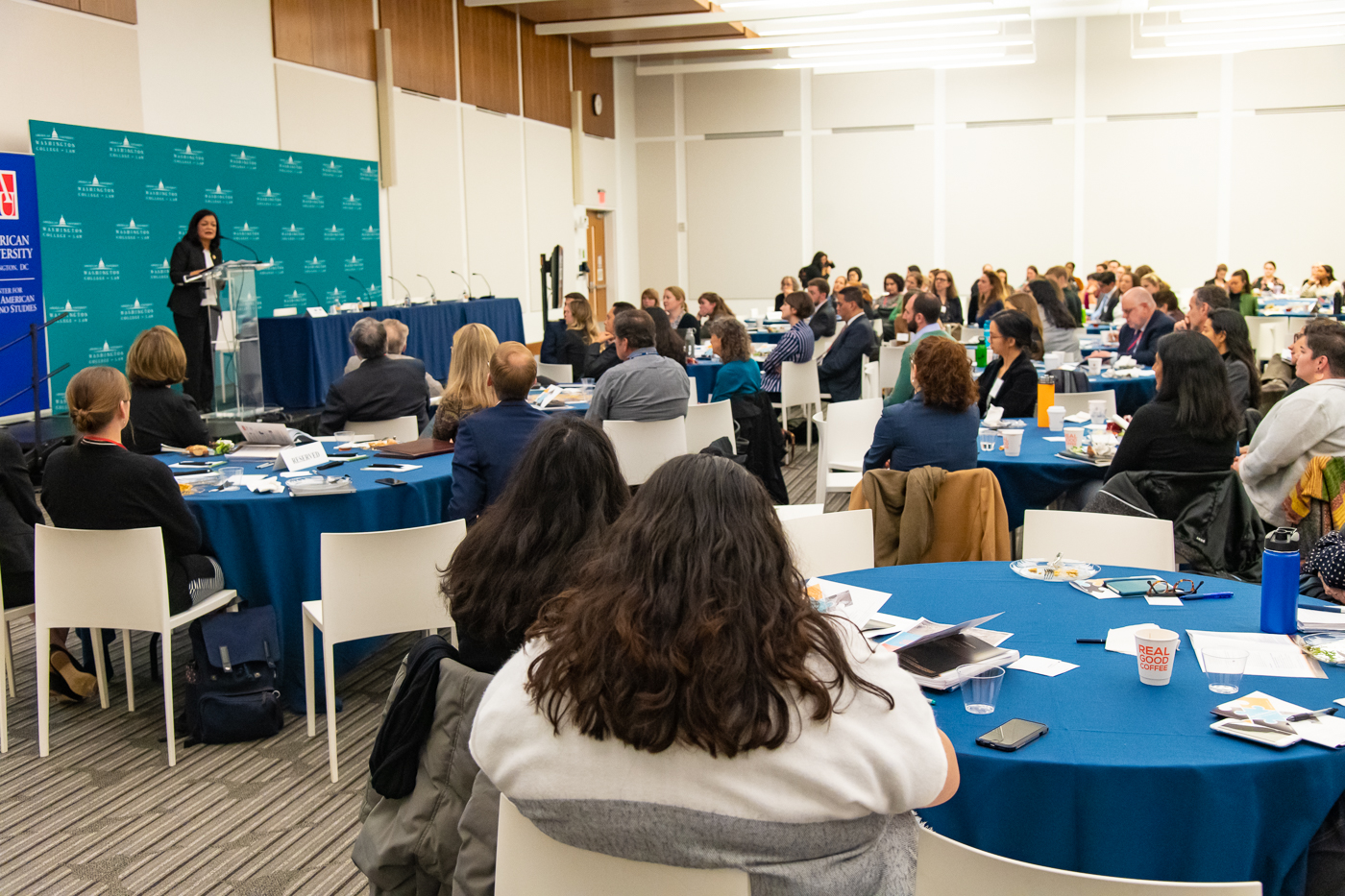Conference Examining Treatment of Children under Current Immigration Policy Features Top Legal, Policy, and Child Protection Experts
Feb. 17, 2020

A high level, two-day conference on “In Children’s Best Interests: Advancing a Fundamental Standard for the Treatment of Immigrant Children,” took place at American University Washington College of Law (AUWCL) Feb. 13 and 14. The conference, sponsored by the AU Center for Latin American & Latino Studies, AUWCL, and the American Immigration Lawyers Association (AILA), addressed the best interest standard, which has served to safeguard the well-being of children in the U.S. for over a century, regardless of immigration status.
“We have been deeply troubled by the seismic shift in the treatment of children migrating to the United States,” said Dennis Stinchcomb, assistant director of the AU Center for Latin American & Latino Studies and a second year law student at AUWCL. “Under the current administration, cruelty has become the deterrent of choice, with grave consequences for children's wellbeing. In convening this symposium, our hope was not only to bring to the fore of the public discussion the erosion of fundamental protections for migrant children, but to leverage the cross-disciplinary expertise of participants and attendees to think critically and creatively about advancing child-sensitive immigration policies.”

The conference featured 36 speakers and was attended by more than 300 immigration lawyers, policy experts, health professionals, and others dedicated to child protection.
U.S. Rep. Pramila Jayapal (D-WA) gave the keynote address on day one of the conference. Jayapal, who was first elected to Congress in 2016, represents Washington’s 7th District and is one of only 14 naturalized citizens currently serving in the U.S. Congress.
“I do believe the vast majority of Americans are supportive of immigration, and have connections to their own immigrant histories,” said Jayapal, who also serves on the House Judiciary Committee and is vice chair of its Immigration Subcommittee. “The challenge is immigration can always be used as a political tool and that is what we see happening.”
Jayapal discussed her experiences meeting women in border detention centers, and being horrified at the treatment of these women and children.
“Despite the incredible work of many of you, families are still being separated,” she said, noting that many of the children will face life-long consequences as a result of the separation.
Jayapal ended her talk by outlining her main objectives for immigration reform, from investing in the root causes of migration, to enhancing integration efforts for immigrants, to ending attacks on family immigration. “I believe that we need to entirely recapture the moral imagination of America on immigration,” she said. “We need to recognize that a strong and functioning immigration system actually levels the playing field for all workers.”
“We need to recognize that a strong and functioning immigration system actually levels the playing field for all workers.”
Rep. Pramila Jayapal
The Best Interests of the Child
The program kicked off on Thursday, Feb. 13 with opening remarks from Sheila Starkey Hahn, chair of the AILA Pro Bono Committee, and Professor Jayesh Rathod, associate dean for experiential education at AUWCL.

“AUWCL is proud to be a co-host of the symposium, focusing on the treatment of immigrant youth, both in the United States and beyond,” said Rathod, who also directs the law school’s Immigrant Justice Clinic. “By assembling an exceptional group of experts – including lawyers, social scientists, health professionals, and others – we hope to distill both challenges and opportunities for advancing the best interests of these children. This event builds upon the work of many AUWCL programs, including its clinics, on behalf of migrant youth and their communities.”
The “best interests” standard was addressed by two Thursday morning expert panels that examined the treatment of children under international frameworks and when in detention.
“We know that we think of ‘best interests’ as one part of case management for each particular child,” said Alice Farmer, legal officer for the UN High Commissioner for Refugees D.C. Office. “The Committee on the Rights of the Child is thinking about the best interest as a substantive right and as a legal principle.”
Devon Cove of Refugees International, who noted that her entire career has been focused on protection, said, “the ‘best interests’ principle is the foundation of any child protection work.” States have the responsibility to protect all children within their territory and operationalize the best interests principle, she explained.

Wide Discretion, Lasting Effects
Friday morning’s panel – which aired live on C-SPAN – focused on family separation at the U.S. border and the challenges of reunification.
“We know that the split second where a border patrol agent makes a decision to separate a child has a lasting and profound effect,” said Christie Turner-Herbas of Kids in Need of Defense (KIND).
“Parent-child separations are continuing to happen” despite the “end” of the zero-tolerance policy, Turner-Herbas said. “DHS can separate children when the parent has a criminal history and that is very troubling to us because the parent may be of no danger to their child. Agents still have wide discretion to make those determinations in a split second at the border.”